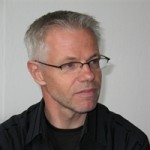Forest management by local communities as part of the solution?
Last night I woke up because of a huge bang. Immediately I sat upright in my bed. A bang in Paris cannot mean anything good in this day and age. Tensely I listened to what would follow: screaming, or not, sirens, or not. It remained awfully silent. After a few minutes I checked the NOS app on my phone; it still showed a lot of cruelty in the world, but luckily not right then in Paris. This morning the hotel manager told me that a steel door banged shut in the courtyard because of strong winds. It also scared him.
This ‘nicely’ shows how we interpret events very differently, depending on the current situation we’re in and our view of the world at that moment (which is also what we try to show students when we discuss ‘frames’ and ‘discourse’ in politics; something that counts for the climate policy that is attempted to be improved in the coming two weeks as well; consensus does not come easily, considering all the different discourses about the problem itself, the solutions, the time frame and so on). Three weeks ago I would probably have thought about the storm immediately after hearing that bang, since it was so windy, but after November 13th my thoughts went into another direction straight away.
As I wrote yesterday, I am visiting the FLARE (Forests and Livelihoods: Assessment, Research and Engagement) conference. It is about households, villages and communities in the poorer regions of our world – the so-called global south – that are highly dependent on forest (produce). Researchers have two concerns about these vulnerable groups, namely, 1) that climate change is making their situation (more) difficult and 2) that forestry programmes that attempt to address climate policy do not take the situation of these local groups into account. An example of the latter is REDD+ (Reducing Emissions from Deforestation and Forest Degradation). The idea is that by maintaining forests, counteracting deforestation, improving forest management and stimulating reforestation, carbon can be detained, and this is good for the climate.
However, there are of course other interests at play. This programme looks mostly at the tropics, where deforestation is strongest. But developing countries often have other priorities than maintaining forests, for example economic growth. Usually this negatively affects the forests (shifting land-use to agriculture and wood-exploitation). This is why REDD+ is coupled with funds to convince developing countries to limit deforestation with extra money. The UN, the World Bank and countries such as Norway are by now investing billions of dollars in REDD+ projects and over 400 projects have started. The question is whether these actually benefit the ‘normal people’. Are they still able to use the forest for their livelihoods when it is protected more strictly under the REDD+ programme? Do they have a say in the development and implementation of the projects? Do they share in the revenues, the donor money? These are questions the researchers at this conference are working on.
Yesterday I was leading a panel about the effectiveness of communal and participatory forest management (forest management executed by local communities, sometimes together with forest services of the government). This seems a marginal topic, but almost one fifth of the forests world-wide are managed under such circumstances. And an increasing amount of countries have started following this approach, because forest maintenance by the state often fails.
But does it lead to extra income for those local groups involved (which is necessary considering the poverty amongst rural populations in the tropics)? Does it contribute to the quality of the forest (which is necessary in turn for economic and ecological sustainability)?
Well, the experiences are mixed. Many of such initiatives are successful, but just as many fail. Particularly the huge gap in power between governments, local elites and ‘normal’ users limit the possibilities of this kind of forest management. On the other hand, increased knowledge about the forest and the setting up of local institutions (meaning: agreements about management and usage in written guidelines, following those and checking this) help to move such initiatives forward. Much scientific research in this field is conducted in hindsight, and rather static in its approach, whereas climate change is forcing us to long forward and taking into account the dynamics of the landscapes. This is how climate change is also influencing our research agenda.
Bas Arts is professor Forest and Nature Management at Wageningen University. During COP21 he is sharing his impressions of the conference and the events around it on this blog.
Photo:javarman / Shutterstock.com

